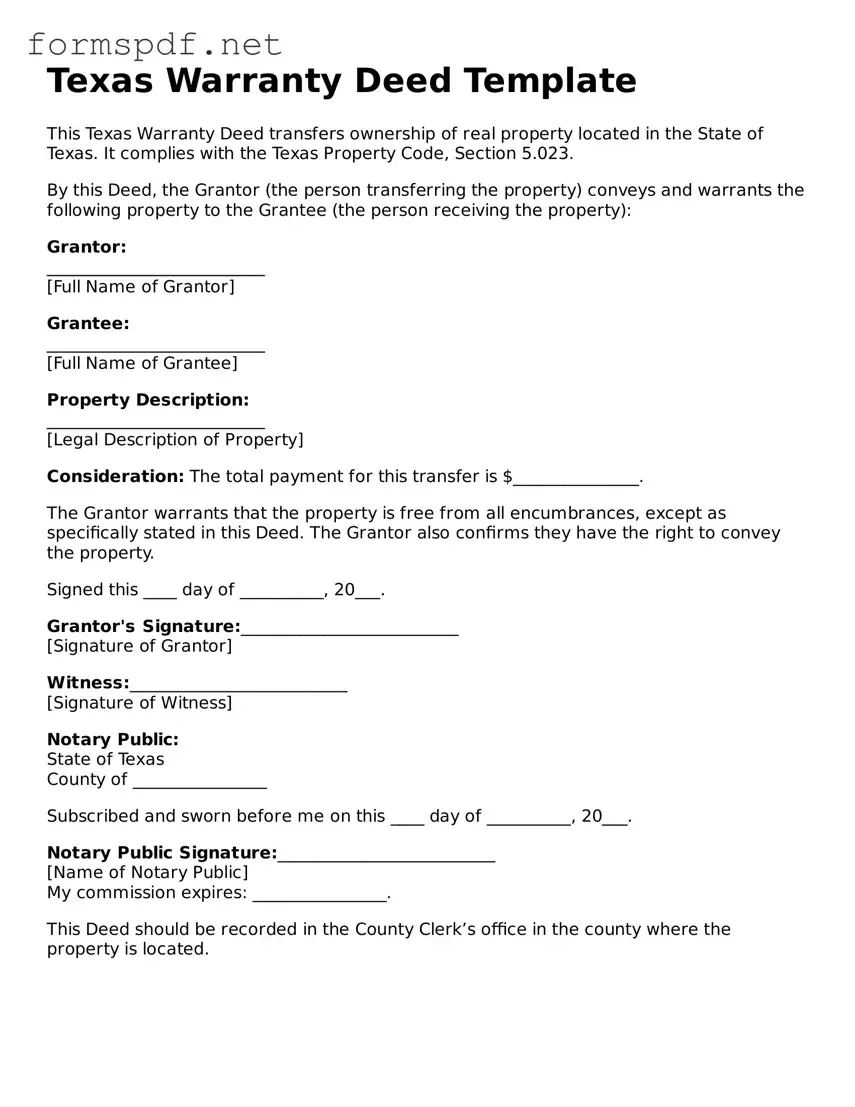Free Deed Form for Texas
A Texas Deed form is a legal document used to transfer ownership of real estate in the state of Texas. This form outlines the details of the property being transferred and the parties involved in the transaction. To ensure a smooth transfer, it’s essential to fill out the Texas Deed form accurately—click the button below to get started!
Launch Editor Now

Free Deed Form for Texas
Launch Editor Now

Launch Editor Now
or
⇓ Deed PDF
Don’t leave without finishing the form
Finish your Deed online and download the final version.